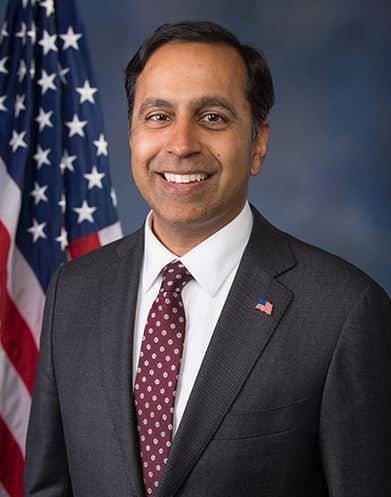‘We Are Not a Monolith’: Understanding Mass Diversity Key to Winning Over APPI Voters

WASHINGTON — Asian American Pacific Islander Heritage month may be wrapping up, but the APPI community is pledging to come together to speak up, speak out, and be heard as perhaps never before.
There has been recognition of APPI heritage and accomplishments, including a record number of APPI in Congress and a historic APPI Vice President, as well as much celebration about the recently passed anti-Asian American hate crime bill. Yet while 2021’s AAPI heritage month may have taken on greater consequence than in the past, three AAPI leaders in the House of Representatives say there is more to achieve, and an APPI political agenda to refine.
“[We need to] make sure elected officials know what our agenda is,” said Rep. Raja Krishnamoorthi, D-Ill, adding that “voting, working on causes bigger than ourselves, and running for office” were other important steps to highlight priorities of AAPI voters.
In 2020, AAPI had their biggest turnout increase — up 39% in four years — yet despite being the fastest-growing group of voters, they are still potentially the least understood. This is among the reasons why Krishnamoothi coined the term “Samosa Caucus” for his fellow Indian American congressional colleagues and pushes other AAPI lawmakers to work together in policy collaborations as well.
“If you don’t have a seat at the table, you’re on the menu,” said Krishnamoorthi. “We can’t afford to be on the menu.”
Alongside Krishnamoorthi, Reps. Ted Lieu, D-Calif, and Marilyn Strickland, D-Wash., joined the center-left public policy foundation Third Way to unpack AAPI priorities and voting trends and outline how political leaders can earn AAPI votes moving forward.
“We want an America that is safe, that is secure, and just — or fair,” said Strickland. “[But we are] left out of the conversation, period. For so long we’ve been overlooked or ignored. There are so many people in the U.S. who know very little about the Asian American diaspora.”
“There is all of this history that isn’t being taught,” added Lieu, suggesting that this dearth, as well as harmful rhetoric and xenophobia, are what may be most negatively impacting Asian Americans.
But education isn’t everything; culture is a major contributor. While AAPI are subject to some of the same issues that disproportionately impact minority communities, the diaspora’s vastly different ethnic groups are growing, spreading out into new and different places around the U.S., and are responding disparately to different messaging.
“We need a history lesson and people need to better understand the mass diversity that exists within [the Asian American community]. We are not a monolith,” said Strickland. “We [also] represent the entire spectrum of economic opportunity.”
While Strickland pointed out that AAPI’s changing demographics and surge in voter turnout mostly helped the Democratic party in 2020, she admitted that there is a portion of the AAPI population that tends conservative. This is why candidates shouldn’t anticipate a one-size-fits-all approach to APPI communication and political campaign messaging.
“We also need to be organizing year-round, not just before election day,” said Lieu.
He offered that “fieldwork and canvassing have shown to have an effect on races at the margins,” but candidates may need to invest more in digital media platforms and look into new methods to reach AAPI voters in the future.
“We’re very much about our culture and our history,” said Strickland. “We like large gatherings with lots of food.”
























